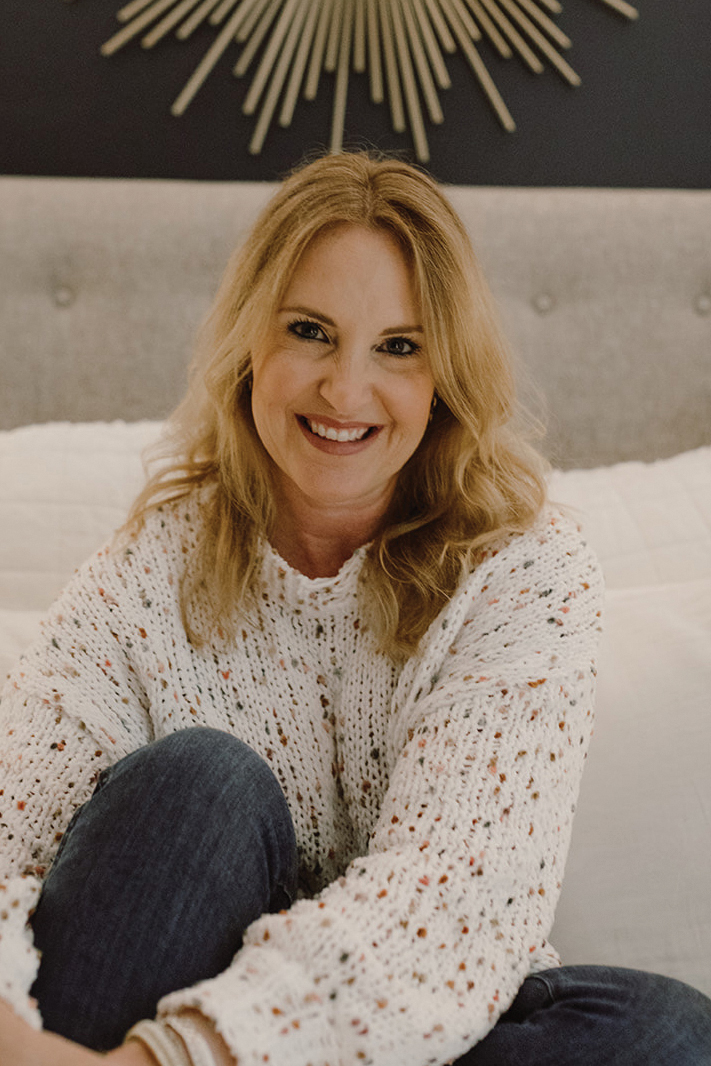I have a Six Pack and I don’t mean my Abs.
I’ve had the opportunity to talk to a lot of women and a few men about the end of their marriage. The first thing I usually start with is, “Tell me about your support system.” It seems like a broad area to initially ask about. Most people expect me to ask more about what ended the marriage or where they are in the divorce process or how the kids are doing.
But the reality is, outside of their relationship with God, a support system is vital in hope and healing. Isolation can be detrimental. And trust me, I’ve done both. I’ve cut off communication and detached because the pain was too great. I secluded myself due to the embarrassment of failure. Coming out of feeling verbally and mentally abused in a relationship takes a lot of relearning. Relearning how to share the reality, relearning how to trust your intuition, relearning how to be vulnerable, relearning what it feels like to feel safe with another person.
For me, leaning in to my community took work. It took vulnerability, and in some cases, it took repair. It’s difficult to lean on community during heartbreak, to trust anyone when your heart literally feels like it is crushed from broken trust. A life of connection and community is risky; however, a life lived in isolation is an even greater risk.
There will be people in your life who will hold your story and people who will hear your story. The people who hold your story are the ones who walk with you through the darkest days. They possibly feel your story is a part of their story.
I remember when my best friend’s husband, Jud, described what Lori experienced when she’d hang up the phone with me. Keep in mind we live two thousand miles apart, and she would call every day. She would say she knew how I was doing based on hearing my voice. Jud said she’d hang up the phone with me and walk straight to his office, lay her head in his lap, and just sob. Her heart broke for me because she was holding my story. My story became part of her story.
Maybe you are that support system for the person walking through divorce. Here are a few thoughts. We often ask the hurting person, “What do you need?” or “What can I do for you?” or a few other versions of that inquiry, offering authentic help. Here’s the catch. A person in trauma doesn’t know what they need. So when asked, “What do you need?” they don’t know. They don’t have an answer. They can’t articulate what they need. And honestly, what they do need, you probably can’t give them.
Give them options. For instance, you can give specific offers like, “What do you need today? I can come to your house and cook dinner. We can go out for dinner. Or you can come to our house and I’ll cook.”
Options allow the person in trauma the ability to make a decision and not feel overwhelmed. It helps them to articulate what they need at that time. It helps ground them to feel like they have some control over what is going on around them. When offering help, it’s a minor tweak that makes a huge difference.
This played out in my life at sporting events. Showing up alone to events for your kids can be really difficult. You’re self-conscious, you’re alone, trying to figure out where to sit, who to sit with, and all the while wanting to keep a smile on your face for your kids when your heart is broken.
I went from sitting with multiple family members to being alone. It’s hard.
Then this group of five ladies drifted into my life. Our kids had played football together since sixth grade. We’d all been acquaintances since 2014, but something about the football season seven years ago glued us together. They saw I was hurting, and they stepped in. I’m not even sure how we all connected, but they became a lifeline for me in so many ways.
Each gameday I’d get a text from one of them or sometimes several of them. The text gave me options. For instance, “Want to meet at the tailgate or want to meet in the stands?” If it was an away game, it would sound more like, “Want us to pick you up, or do you want to meet us at the tailgate?” I didn’t even realize at the time how beneficial the options were in allowing me to choose what I was most comfortable with.
I never would have asked for help navigating Friday nights; it just wouldn’t have been my nature. They just stepped in and created community every Friday night. Trust me when I say, Friday night games are just one of the many ways these five lovely ladies have shown up for me over the last seven years.
We’re now “The Six Pack” because there are six of us, not because of our killer abdominal game—there are way too many kids between us for that.
Then there are the friendships that feel like they have always existed. The weekend before mediation for my divorce, I flew to meet two of my best friends, Lori Wilhite and Lisa Hughes, and their husbands. These are the two friends who dropped everything and surprised me by flying to Nashville and spending a few nights and days with me on what would have been my twentieth wedding anniversary.
These are the two friends who, over a ten-hour uninterrupted period and lots of Diet Coke, listened to me recount my twenty years of marriage and all the times I felt trust had been shattered, beginning in year one and working chronologically through the relationship. These are the type of friends who, when I gave permission for them to “talk behind my back” (because I grew tired of repeating the details of daily life), responded with, “We already do.” And there was never a concern that they were gossiping about me. I knew any conversation they were having “behind my back” was out of genuine concern and love.
I knew that my heart and my head needed the encouragement, positive feedback, and validation from healthy men who stood on stages and shared the hope of God. Trust me, it isn’t lost on me that God placed two friends in my life who are married to pastors, men who held very similar positions to my ex-husband. Their willingness to be with me before the one big day that signified the end of the last twenty years—that’s friendship.
These types of friendships bring to mind this story from Exodus 17. Joshua had led the Israelites into battle against the Amalekites, just as Moses had ordered. While Joshua was on the ground fighting, Moses, along with Aaron and Hur, climbed on top of a nearby mountain. While Joshua led the charge on the ground, Moses lifted his hands in prayer to God. While Moses’s hands were raised, the Israelites were winning. If his arms lowered out of fatigue, the Amalekites prevailed. The combat lasted for hours, and this is where the story gets good.
So Joshua did what Moses had commanded and fought the army of Amalek. Meanwhile, Moses, Aaron, and Hur climbed to the top of a nearby hill. As long as Moses held up the staff in his hand, the Israelites had the advantage. But whenever he dropped his hand, the Amalekites gained the advantage. Moses’ arms soon became so tired he could no longer hold them up. So Aaron and Hur found a stone for him to sit on. Then they stood on each side of Moses, holding up his hands. So his hands held steady until sunset. As a result, Joshua overwhelmed the army of Amalek in battle.
Exodus 17:10–13
Moses could only continue his intercession because of his support system. Aaron and Hur literally held up his arms so he could continue fighting the battle in prayer. We are left with no other option than to believe that if Aaron and Hur hadn’t stepped in so Moses could continue to fight the battle with prayer, the Israelites would have been defeated by the Amalekites.
And don’t overlook what jumps out in this story. God is the provider of victory when we are attacked. Our attackers might not be armor-wearing, sword-wielding soldiers. The battles may be with familiar faces and well-aimed verbal blows. God is the provider of victory. God is also the provider of friends to literally hold up our arms when we can’t anymore. As women, we are often in the arm-holding business. We support and hold up arms all around us, from our children to coworkers to church friends to neighbors.
This passage in Exodus invites these questions: Who is holding up your arms? Who is joining you in your pain, struggle, hurt, and weariness? Who is grabbing hold of your exhausted hands and helping to lift them to the Lord? You might be asking how to find these people in your life. Let me share a few characteristics that point to a safe friendship. And if you don’t have a friend like this, ask God to bring you the friendship you need.
1. They help you become a better version of yourself.
2. They nurture your talents and abilities.
3. They help connect you with other safe people.
4. They help you develop your spiritual growth.
5. They celebrate your accomplishments and cheer for you.
6. You can put your guard down with them.
7. Vulnerability is welcomed between you.
Article adapted from Better Than Okay: Finding Hope and Healing After Your Marriage Ends by Brandi Wilson (copyright 2023, published by Bethany House / Baker Publishing Group)
Brandi Wilson is a coach and speaker who has been in leadership for more than a decade at Leading and Loving It, a non-profit created to empower women to love life and ministry. Brandi has helped plant two churches and is passionate about walking alongside single moms and divorced women as they navigate parenting and life. Her latest book is Better Than Okay: Finding Hope and Healing After Your Marriage Ends. Brandi lives with her three sons in Nashville, TN. www.LoveBrandiWilson.com











0 Comments